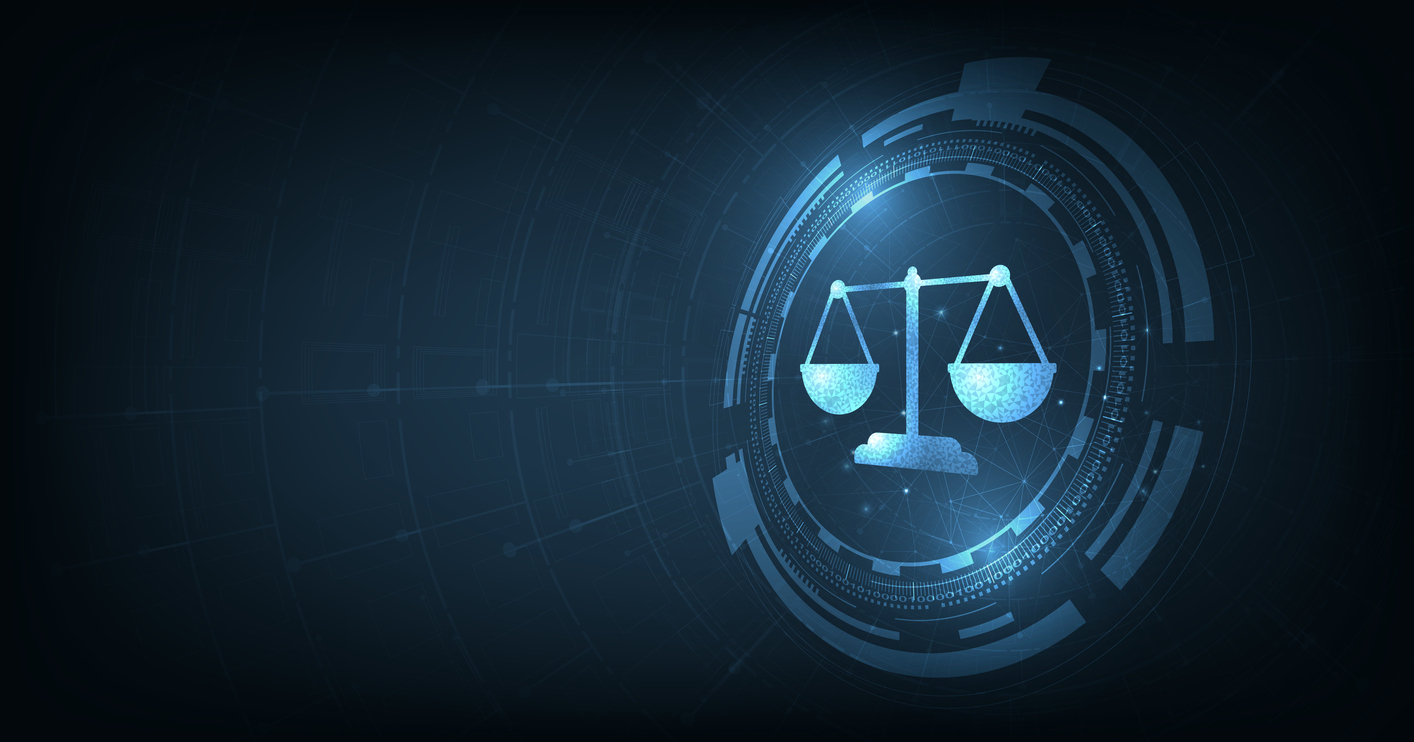Automation essentially refers to the use of a machine or software that completes a task automatically without human intervention. Artificial intelligence, (AI) is often used within automation to enhance its efficiency through finding smarter and more intelligent strategies for the task to be completed. Unless you’re in the field of data science, these concepts can often sound pretty intimidating and confusing at first but in fact, they’re what make life in the modern world a lot easier. Online customer service chatbots, mobile apps like Apple Pay, smart home devices such as Amazon Alexa and even coffee machines are just a few of the many ways in which they are used in everyday life.
Automation and AI have been around for a while, transforming numerous industries from agriculture to healthcare. However, it’s only within the past few years that they have started to really make an impact within the legal sector.
The legal sector is one of the oldest and most traditional professions out there, and has tended to keep its traditional way of thinking meaning the adoption of automation and artificial intelligence in law has been fairly slow. However, due to increasing customer expectations and demands for faster, more accurate, and low-cost services, the use of automation and legal artificial intelligence is starting to be incorporated more and more by the industry. Reports have shown that in 2019 legal investment in legal technology was £61 million which was a significant increase from 2014 when investment was only £1.5 million. This increase in investment is predicted to continue for legal automation in 2022, and according to Deloitte, as many as 114,000 legal roles could be automated within the next 20 years.
Benefits of automation and artificial Intelligence in law
63% of in-house legal work consists of repetitive, fact-based decisions that don’t require the involvement of human intervention. Yet, the majority of law firms and legal departments manually carry out these tasks wasting a lot of precious time that could be used to focus on higher skilled tasks.
Automation essentially acts as a lawyer’s best friend by taking over mundane and repeatable tasks. Not only does it complete the tasks, it completes the tasks to a greater efficiency and also within a much quicker time frame. Five times faster than a human would, in fact!
The main benefits of using automation and legal artificial intelligence are:
Increase in productivity
As lawyers no longer need to spend hours reviewing contracts and performing due-diligence processes, they have more time to focus and prepare for the more complicated tasks increasing overall productivity and success in the business.
Reduction in costs
Since law firms usually charge by the hour, fewer hours will be needed to complete the tasks as automation gets them done within a shorter period. Whilst this means firms will be charging individual clients less, their overall client intake can increase without the need to increase overall headcount, boosting overall revenue.
Better client experience
Firms can offer clients a more efficient and cost-effective service, and provide them with a seamless and collaborative experience with their business. This not only puts them in a more competitive position within the industry but also will aid in helping to increasing the firm’s retention rates in the future.
Uses of automation and AI in the legal sector
Automation and AI in law firms and legal departments can take over a wide variety of tasks such as reviewing and processing high volumes of documents, carrying out due-diligence processes, contract management, compliance processes and workflow automation… the list goes on! Let’s take a look at a few specific examples that are being adopted widely within the industry at the moment.
Contract workflow automation
This is probably one of the most popular uses of legal technology at the moment. From NDAs to employment contracts and lease agreements, companies both create and receive a wide range of contracts that need to be closely read and processed. Traditionally, this is done manually which not only takes up a great deal of time and effort for the lawyer, but also increases the risks of making mistakes. When it comes to contracts, mistakes need to be avoided at all costs since the result of one little contract mistake can be significant and have huge consequences.
Contract Lifecycle Management (CLM) is an automated end-to-end solution for the legal sector where the processing and management of contracts are taken over by automation. It can create contracts, read and review them, signal any mistakes or concerns with 100% accuracy, and also provide deeper insights to allow for more informed decision making. It also allows for companies to gain more control and access to contracts since all contracts can be kept in one secure place. As it’s an online digital platform, contracts can be accessed by employees anywhere anytime, which was particularly beneficial for the sudden switch to remote working during the pandemic.

The use of automation and legal artificial intelligence for more successful cases
Predictive coding
One of the most advanced types of AI technology that is being used within the legal sector at the moment is the ability to predict the outcomes of cases. AI technology can gather and analyse large amounts of data from judicial precedents and identify patterns that can be used to predict the outcome of a new case. Using smart algorithms, AI technology can also be used to analyse and rank documents according to their relevance, reducing the need for lawyers to spend hours sifting through documents trying to figure out which is the most useful for their case.
Legal research
The way lawyers perform their legal research has also been transformed by the use of new legal technologies. Online platforms such as Practice Law and LexisNexis are online databases that have intelligent search algorithms allowing them to search and find the information most relevant to their case based on the outcomes of previous similar cases.
AI and automation for recruitment in the legal sector
A more efficient, simpler and streamlined recruitment process
Online platforms such as Atlas and Hinterview are being used widely for legal recruitment. Atlas is an automation software that can assess the current passive market and allows for a more personalised approach to recruitment. Hinterview enables organisations to conduct the early stages of the recruitment process online. Firms can ask candidates to answer a selection of basic questions before the interview, and candidates can record a video of them answering these questions along with uploading their CV enabling them to better sell themselves as potential employees of the firm they are applying to.
Increased ability to attract and retain employees.
The adoption of automation and AI in law firms shows innovation within the company and the ability to adapt to the modern world. With the additional time automation gives law firms, they can also offer more specialist training to junior members in the new technology and how to be more successful in winning business. As a result, this will not only increase the overall productivity of the business but will also encourage junior members to think more innovatively in the ways they use this new technology with clients.
Legal technology as a new lawyer
In some cases, automation and legal artificial intelligence are starting to replace the role of the lawyer due to the use of online automated services and smart chatbots, for example:
- Services like Rocket Lawyer and BetterLegal are automated online softwares that allow individuals to create their own legal documents without the need of a traditional lawyer. They help create and process a wide range of legal documents from NDAs to employment contracts for businesses and provide consultations for guidance on specific legal scenarios that a business may be going through.
- Automated chatbots such as DoNotPay and BillyBot are also starting to be used more and more by the public when they require basic legal assistance. DoNotPay allows for people to appeal for their parking fine through an online automated service saving them a significant amount of both time and money than if they were to seek legal assistance traditionally.
Our specialist legal division are experts in recruitment within the legal sector and have over 17 years of experience working with lawyers of all levels from NQ to partner. Find out more about our legal division here, or get in touch with any enquiries here.




